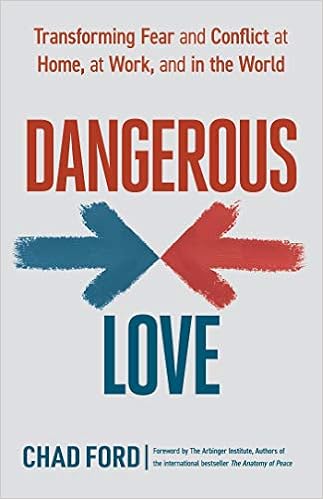Reading Level
What is the reading level of Dangerous Love: Transforming Fear and Conflict at Home, at Work, and in the World?
Analysing the books in the series, we estimate that the reading level of Dangerous Love: Transforming Fear and Conflict at Home, at Work, and in the World is 6th and 7th grade.
Expert Readability Tests for
Dangerous Love: Transforming Fear and Conflict at Home, at Work, and in the World
| Readability Test | Reading Level |
|---|---|
| Flesch Kincaid Scale | Grade 7 |
| SMOG Index | Grade 10 |
| Coleman Liau Index | Grade 8 |
| Dale Chall Readability Score | Grade 6 |
Reading Time
3 hrs 36 mins
How long to read Dangerous Love: Transforming Fear and Conflict at Home, at Work, and in the World?
The estimated word count of Dangerous Love: Transforming Fear and Conflict at Home, at Work, and in the World is 53,785 words.
A person reading at the average speed of 250 words/min, will finish the book in 3 hrs 36 mins. At a slower speed of 150 words/min, they will finish it in 5 hrs 59 mins. At a faster speed of 450 words/min, they will finish it in 2 hrs.
| Dangerous Love: Transforming Fear and Conflict at Home, at Work, and in the World - 53,785 words | ||
|---|---|---|
| Reading Speed | Time to Read | |
| Slow | 150 words/min | 5 hrs 59 mins |
| Average | 250 words/min | 3 hrs 36 mins |
| Fast | 450 words/min | 2 hrs |
- Authors
-
Chad Ford
More about Dangerous Love: Transforming Fear and Conflict at Home, at Work, and in the World
53,785 words
Word Count
for Dangerous Love: Transforming Fear and Conflict at Home, at Work, and in the World
5 hours and 47 minutes
Audiobook length
Description
"Chad Ford reminds us that humanity lies within all of us, and although conflict is everywhere in today's world, we have the tools we need to overcome obstacles and to thrive. This is a fantastic, timely book that I highly recommend."--Steve Kerr, Head Coach, Golden State WarriorsKnowing how to transform conflict is critical in both our personal and professional lives. Yet, by and large, we are terrible at it. The reason, says longtime mediator Chad Ford, is fear. When conflict comes, our instincts are to run or fight. To transform conflict, Ford says we need to turn toward the people we are in conflict with, put down our physical and emotional weapons, and really love them with the kind of love that leads us to treat others as fellow human beings, not as objects in our way. We have to open ourselves up with no guarantee that anyone on the other side will do the same. While this can feel even more dangerous than conflict itself, it allows us to see the humanity of others so clearly that their needs and desires matter to us as much as our own. Ford shows dangerous love in action through examples ranging from his work in the Middle East to a deeply moving story about reconciling with his father. He explains why we disconnect from people at the very time we need to be most connected and the predictable patterns of justification and escalation that ensue. Most importantly, he gives us a path to practice dangerous love in the conflicts that matter most to us.
